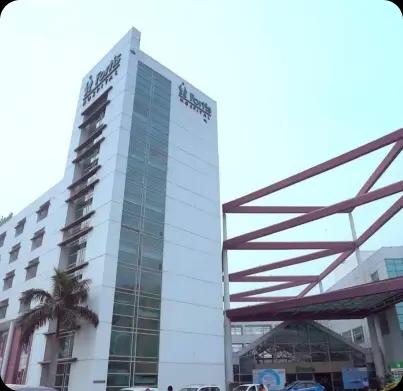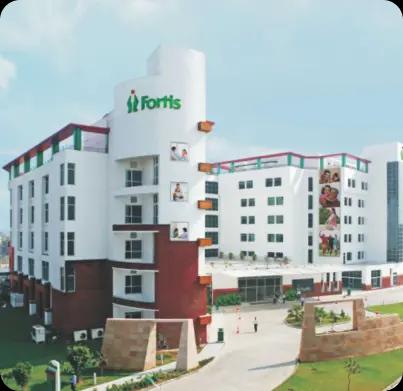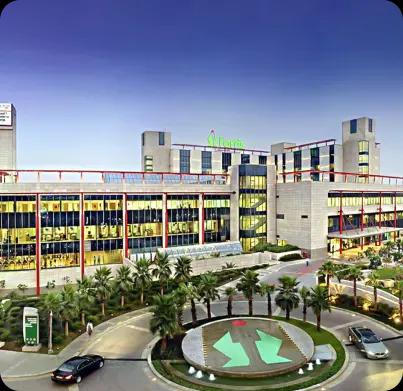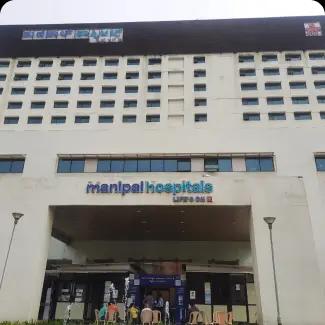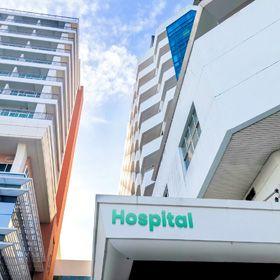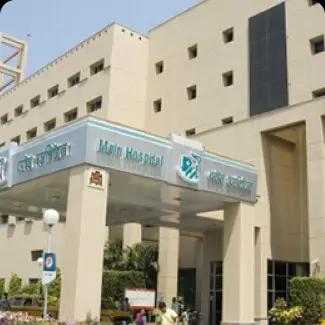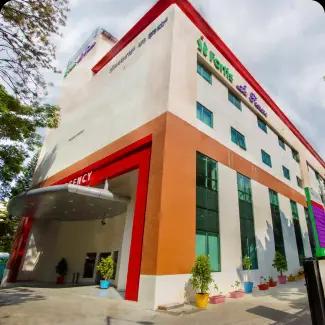
Gastric Bypass Surgery
Gastric bypass surgery is a weight-loss procedure that reduces the size of the stomach and reroutes the digestive system. By creating a smaller stomach pouch and bypassing a portion of the small intestine, it limits food intake and absorption, promoting weight loss. This surgery is often recommended for individuals with severe obesity or weight-related health issues who haven't had success with other methods.
Free Pick up and Drop
No Cost EMI
Post Surgery Care
Gastric bypass surgery is a weight-loss procedure that reduces the size of the stomach and reroutes the digestive system. By creating a smaller stomach pouch and bypassing a portion of the small intestine, it limits food intake and absorption, promoting weight loss. This surgery is often recommended for individuals with severe obesity or weight-related health issues who haven't had success with other methods.
Symptoms Of Gastric Bypass Surgery
Symptoms
When is Gastric Bypass Surgery Recommended
Types of conditions
There are three main types of Gastric Bypass Surgery
Roux-en-Y Gastric Bypass (RYGB)
Mini Gastric Bypass (MGB)
Biliopancreatic Diversion with Duodenal Switch (BPD/DS)
Roux-en-Y Gastric Bypass (RYGB)
The most common type, involving creating a small stomach pouch and rerouting a portion of the small intestine to bypass the rest of the stomach and upper part of the small intestine.
Eligibility for Gastric Bypass Surgery
-
Medical History and Physical Examination: A thorough review of the patient's medical history, including past weight loss attempts, co-existing medical conditions, and lifestyle factors, is conducted. A physical examination helps assess overall health and potential risk factors for surgery.
-
Body Mass Index (BMI) Calculation: Calculating the BMI helps determine the degree of obesity. Individuals with a BMI of 40 or higher, or a BMI of 35 or higher with obesity-related health issues, may be candidates for gastric bypass surgery.
-
Psychological Evaluation: Patients undergo psychological assessment to evaluate their readiness for surgery, understanding of the procedure, and ability to comply with post-operative lifestyle changes. This evaluation also helps identify any psychological factors that may affect the outcome of surgery.
-
Nutritional Assessment: Assessment of nutritional status and dietary habits helps identify deficiencies and potential complications post-surgery. Patients may undergo blood tests to evaluate levels of essential nutrients such as iron, calcium, vitamin B12, and vitamin D.
-
Endoscopic Evaluation: In some cases, an upper gastrointestinal endoscopy may be performed to assess the condition of the stomach and esophagus, rule out any underlying gastrointestinal issues, and determine the anatomy for surgical planning.
Risk Factors
-
Surgical Risks: Complications related to the surgery itself, such as infection, bleeding, blood clots, and adverse reactions to anesthesia.
-
Rapid weight loss: Due to reduced food intake and nutrient absorption, individuals may experience significant and rapid weight loss after gastric bypass surgery.
-
Changes in bowel habits: Alterations in bowel movements, such as diarrhea or constipation, can occur as the digestive system adjusts to the surgery.
-
Dumping syndrome: Rapid emptying of the stomach contents into the small intestine can cause symptoms like nausea, vomiting, sweating, and dizziness after eating.
-
Nutritional deficiencies: Reduced absorption of nutrients, particularly iron, calcium, and vitamin B12, may lead to deficiencies and related symptoms like fatigue, weakness, and brittle bones.
-
Gallstones: Rapid weight loss can increase the risk of developing gallstones, which may cause abdominal pain, nausea, and vomiting.
-
Weight Regain: Despite initial success, some patients may experience weight regain over time due to factors such as poor dietary choices, lack of exercise, and stretching of the stomach pouch.
-
Psychological Effects: Patients may experience psychological challenges such as depression, anxiety, body image issues, and disordered eating patterns following surgery.
Preparing for Surgery
-
Medical Evaluation: Undergo a thorough assessment of overall health and medical history to determine candidacy for surgery.
-
Weight Loss and Nutrition: Follow a prescribed diet and exercise plan to optimize health and reduce surgical risks.
-
Lifestyle Changes: Quit smoking, limit alcohol intake, and adjust medications as necessary to prepare the body for surgery.
-
Education and Counseling: Attend informational sessions and receive counseling to understand the procedure, risks, and expected outcomes.
-
Psychological Evaluation: Undergo evaluation to assess mental readiness and identify any psychological factors that may impact surgery and recovery.
Treatment Details
Types of Gastric Bypass Procedures
-
Roux-en-Y Gastric Bypass (RYGB): The most common type, involving creating a small stomach pouch and rerouting a portion of the small intestine to bypass the rest of the stomach and upper part of the small intestine.
-
Mini Gastric Bypass (MGB): Similar to RYGB but with a simpler surgical technique involving a longer bypassed segment of the small intestine.
-
Biliopancreatic Diversion with Duodenal Switch (BPD/DS): A more complex procedure involving a sleeve gastrectomy and a longer intestinal bypass, leading to significant weight loss and improved metabolic outcomes.
Techniques Used for Gastric Bypass Surgery
-
Laparoscopic Surgery: Minimally invasive technique involving small incisions and the use of a laparoscope (a tiny camera) and specialized surgical instruments for greater precision and faster recovery.
-
Robotic-Assisted Surgery: Robotic systems such as the da Vinci Surgical System may be used to enhance the surgeon's precision and control during the procedure, leading to improved outcomes and reduced complications.
-
Advanced Imaging: Pre-operative imaging techniques such as CT scans or MRIs may be used to assess anatomy, plan the surgery, and identify any potential issues or anomalies.
Facilities Available
-
Specialized Bariatric Centers: Hospitals or medical centers with dedicated bariatric surgery departments and experienced multidisciplinary teams including surgeons, dietitians, psychologists, and support staff.
-
State-of-the-Art Operating Rooms: Equipped with advanced surgical technology, including laparoscopic and robotic systems, to ensure safe and effective surgical procedures.
-
Comprehensive Pre-operative Assessment: Facilities offering thorough preoperative evaluations, including medical, nutritional, and psychological assessments, to optimize patient readiness and outcomes.
-
Post-operative Care Units: Specialized units or wards equipped to provide intensive monitoring and care for patients recovering from gastric bypass surgery, including pain management, nutritional support, and early mobilization.
-
Long-term Follow-up Programs: Comprehensive follow-up programs offering ongoing support, monitoring, and education to help patients achieve and maintain successful weight loss outcomes and manage any potential complications or concerns.
Recovery
- Day 1-3: Hospital stay for monitoring and pain management.
- Day 4-7: Gradual transition from liquid to soft foods.
- Day 7-14: Introduction of solid foods under dietitian guidance.
- Day 14 onwards: Increase in physical activity and regular follow-up appointments.
Your journey to good health begins here

Accredited Hospitals
Nationally accredited hospitals for high-quality care

Multi-language Support
Convey your needs in the language you're most comfortable in

Travel Booking Assistance
Seamless booking assistance for your healthcare journey

Personalised Treatment Plans
A treatment journey tailored to all your preferences and needs

Unparalleled Hospitality
Experience exceptional hospitality during your stay

Easy Medical Visa Approvals
Dedicated assistance for medical visa requirements
Plan your healthcare journey with Karetrip!
India’s Best Hospitals are Partnered With Karetrip
Access World-Class facilities from top Hospitals across India
Consult with India’s most experienced doctors
Experience premium care from India’s leading specialists
Cost Estimation
Learn about the expenses involved in the procedure and what factors affect them.

The cost of gastric bypass surgery can vary widely depending on various factors such as:
- Hospital or surgical facility fees
- Surgeon's fees
- Anesthesia charges
- Pre-operative tests and evaluations
- Post-operative care and follow-up consultations
- Geographic location and healthcare infrastructure
The average cost of the Gastric Bypass Surgery in India is around ₹ 2,50,000 to ₹ 5,00,000 .

₹ 5,00,000
High Cost
₹ 3,00,000
Average Cost
₹ 2,50,000
Low Cost
The LIST of AVERAGE COST of the Gastric Bypass Surgery across TOP 4 cities in India in Indian Rupee (INR) is as follows :
City
Lowest Cost
Average Cost
Highest Cost
Delhi
₹ 3,50,000
₹ 4,00,000
₹ 5,00,000
Mumbai
₹ 3,00,000
₹ 3,50,000
₹ 4,50,000
Bangalore
₹ 2,50,000
₹ 3,00,000
₹ 4,00,000
Chennai
₹ 2,50,000
₹ 3,00,000
₹ 4,00,000
Commonly Asked Questions
What is gastric bypass surgery, and how does it work to aid weight loss?
Gastric bypass surgery is a weight-loss procedure that reduces the size of the stomach and reroutes the digestive system. It restricts food intake and limits the absorption of nutrients, resulting in significant weight loss.
Am I a candidate for gastric bypass surgery? What factors determine eligibility?
Candidates for gastric bypass surgery typically have a body mass index (BMI) of 40 or higher (or BMI of 35-39.9 with obesity-related health issues). Other factors considered include previous weight loss attempts and overall health status.
What are the risks and potential complications associated with gastric bypass surgery?
Risks and complications may include infection, bleeding, blood clots, dumping syndrome, nutritional deficiencies, and gastrointestinal issues. It's essential to discuss these risks with your healthcare provider.
How long does it take to recover from gastric bypass surgery, and what can I expect during the recovery process?
Recovery time varies, but patients usually stay in the hospital for 1 to 3 days. The recovery process involves gradually transitioning from liquid to solid foods, managing pain, and incorporating light physical activity.
Will I need to make significant lifestyle changes after gastric bypass surgery? What dietary and exercise recommendations should I follow?
Yes, lifestyle changes are crucial for long-term success. Patients must follow a specific post-operative diet plan, focus on portion control, and incorporate regular exercise into their routine.

Do you still have a query?


"I had a successful surgery at Fortis Escorts Hospital, and it was all thanks to Karetrip's help in finding the right hospital for me. The entire process was smooth and stress-free, with Karetrip handling all the arrangements and answering any questions I had. The medical team at the hospital was outstanding, and the facilities were top-notch. I highly recommend Karetrip to anyone looking for a tension-free healthcare experience."
Read MoreFatima
Chattogram


"Thanks to Karetrip, I got connected with MAX Hospital in New Delhi. The team guided me through every step – from finding the right doctor to handling travel and visas. They made a daunting process feel like a breeze. The care I received at MAX Hospital was outstanding, and I can't thank Karetrip enough for making it possible. They truly put patients first and go the extra mile to ensure a smooth healthcare journey. I'm grateful beyond words!"
Read MoreHasan
Dhaka


"At first, I was unsure about having a medical procedure done in a foreign country. However, Karetrip's team at Indraprastha Apollo Hospital made me feel much better. The hospital was very clean, modern, and had everything they needed to help me. The staff were very kind and did everything they could to make me feel comfortable. I'm really happy with how my treatment turned out, and I appreciate Karetrip for making it easy and stress-free."
Read MoreImran
Sylhet
 Google Reviews4.9/5
Google Reviews4.9/5




I had a successful surgery at Fortis Escorts Hospital, and it was all thanks to Karetrip's help in finding the right hospital for me. The entire process was smooth and stress-free, with Karetrip handling all the arrangements and answering any questions I had. The medical team at the hospital was outstanding, and the facilities were top-notch. I highly recommend Karetrip to anyone looking for a tension-free healthcare experience.
Fatima
Chattogram
 Google Reviews4.9/5
Google Reviews4.9/5




